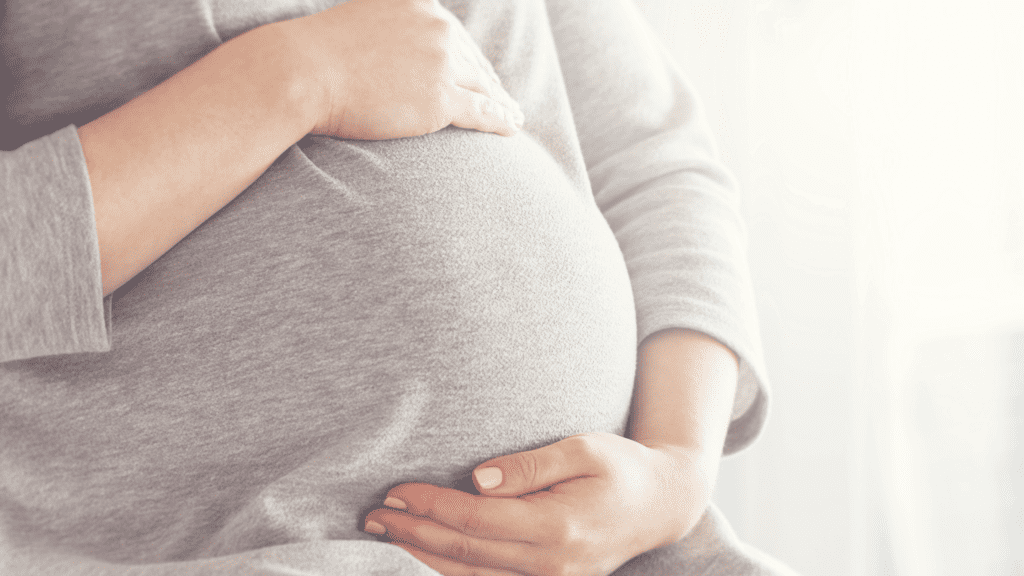Estimates from NIDA (National Institute on Drug Abuse) shows that 5% of women will use at least one addictive substance during pregnancy.
Today’s guide highlights the dangers of drug and alcohol use for pregnant women, and examines the most effective ways of treating pregnant women for substance abuse.
Pregnancy and Substance Abuse
Data from CDC (Centers for Disease Control and Prevention) indicate that roughly one in ten pregnant women drink alcohol. This can be dangerous for mother and baby.
March of Dimes reports that one in twenty pregnant women abuse illicit drugs like marijuana, meth, cocaine, or heroin.
Research shows that the most prominent risk factors for substance abuse during pregnancy include depression and anxiety.
Among pregnant women, the most used substances are:
- Tobacco
- Alcohol
- Marijuana
- Other illicit drugs
When a pregnant women ingests addictive substances, these substances travel directly from mother to baby by way of the placenta just like nutrients and oxygen.
The scope and severity of the risks associated with substance abuse during pregnancy will depend on many variables, including:
- Substance of abuse
- Frequency of substance use
- Amount of substance used
What Are the Consequences of Substance Abuse During Pregnancy?
All substance use during pregnancy is liable to provoke adverse outcomes. Complications will vary depending on the substance of abuse.
Alcohol use during pregnancy
Drinking alcohol during pregnancy can cause stillbirth, miscarriage, and FASD (fetal alcohol spectrum disorders). FASD is a group of chronic physical, behavioral, and cognitive disabilities in developing children of mothers who consume alcohol.
Disorders on the fetal alcohol spectrum include:
- FAS (fetal alcohol syndrome)
- ARBD (alcohol-related birth defects (ARBD)
- ARND (alcohol-related neurodevelopmental disorder)
- ND-PAE (neurobehavioral disorder associated with prenatal alcohol exposure)
These disorders are typically characterized by chronic physical and mental symptoms. Although there is no cure for FASDs, early intervention can prevent many residual health complications. Effects and symptoms of FASDs can include:
- Low IQ
- Small head circumference
- Low body weight
- Abnormal facial features
- Vision problems
- Hearing issues
- Poor memory
- Learning disabilities
- Poor coordination
- Hyperactive behavior
For pregnant women, there is no amount of alcohol considered safe to consume. The most effective way of preventing the development of FASDs is to abstain from alcohol throughout pregnancy.
Opioid use during pregnancy
Opioid use, opioid addiction (opioid use disorder), and opioid overdose all remain pressing problems in the United States. Research published in NEJM (New England Journal of Medicine) shows that NAS (neonatal abstinence syndrome) as a result of opioid use during pregnancy is also on the rise. Another study indicates that the incidence of NAS in the United States increased fivefold from 2000 to 2012. This sharp increase coincided with the doubling of prescriptions for opioids to pregnant women during the same period.
Any use of opioids during pregnancy may lead to:
- Pre-term birth
- Miscarriage
- Stillbirth
- Maternal mortality
- NAS (neonatal abstinence syndrome)
Stimulant use during pregnancy
Studies suggest that women are more susceptible to stimulant addiction than men. Common stimulants of abuse include meth and cocaine.
Any use of stimulants during pregnancy may lead to:
- Dangerously high blood pressure levels
- Maternal seizures
- Placental abruption (separation of uterus and placental lining)
- Spontaneous miscarriage
- Premature membrane rupture
- Pre-term birth
Marijuana use during pregnancy
Marijuana is the most commonly used substance during pregnancy. Despite its increasing legalization across the United States, it is nevertheless inadvisable to smoke weed while pregnant.
To reap the full benefit from marijuana, you need to deeply inhale then hold the smoke in your lungs. Marijuana smoke contains many harmful gases, and you will pass these to your baby.
Smoking marijuana while pregnant can also lead to poor growth, breathing, and behavioral problems in your newborn.
You should also avoid using marijuana when breastfeeding since the substance is easily transmitted via breast milk. The same is true for all addictive substances, as outlined above.
Drug and Alcohol Detox for Pregnant Women
Recovery is a chain of events that begins with detoxification.
If you are a pregnant woman and you need to detox from alcohol or drugs, it is essential to seek medical guidance and supervision, both for your safety and for the health of your unborn child.
The optimum methods used during supervised medical detoxification will depend on factors including:
- Substance of abuse
- Extent of substance abuse
- Health of mother
- Psychiatric history of mother
Pregnant women – especially those who are alcohol dependent – should consider detoxing in an inpatient setting. This will mitigate the risk of spontaneous miscarriage during detoxification. Pregnant women who are addicted to opioids or sedatives should strongly consider detoxing in an inpatient setting that provides around-the-clock clinical and emotional care.
Substance Abuse Treatment for Pregnant Women
If you are a pregnant mother and you are dependent on drugs or alcohol, you are at risk of developing withdrawal symptoms if you suddenly moderate or discontinue use. Pregnant women undergoing withdrawal may experience unique complications, both physical and psychological.
You should reach out to a treatment provider specializing in addiction treatment, as well as a maternal fetal medicine specialist or an OBGYN. If you engage with a treatment program that supports the specific needs of pregnant women and provides prenatal care, this can have a powerful and positive influence on you and your baby.
SAMHSA (Substance Abuse and Mental Health Services Administration) suggests that a comprehensive addiction treatment program for pregnant women should include:
- Education about parenting and pregnancy
- Staff with a mixture of addiction treatment, medical, and mental health backgrounds
- Supervised medical detox
- Personalized treatment plan
- Health services
- Psychiatric services
- Dual diagnosis treatment for co-occurring disorders
- Counseling with continuity
- Individual therapy
- Group therapy
- Family therapy
- Child care services
- Housing services
- Transportation services
- 12-step programming
- Life skills workshops
- Aftercare with relapse prevention
Pregnant women with substance use disorders typically respond positively to the following interventions:
- CBT (cognitive behavioral therapy): Helps you to identify what triggers you to use addictive substances and shows you how to adjust your behaviors by using healthy coping mechanisms instead of addictive substances.
- MI (motivational interviewing): Shows you how to overcome any reluctance or hesitation you have about initiating your recovery from substance abuse as a pregnant woman.
- CM (contingency management): Incentivizes and reinforces positive behaviors through small rewards like vouchers.
We can help you with all this and more here at Gratitude Lodge. Don’t let perceived stigma prevent you from connecting with the care that you and your unborn baby need.
Personalized Addiction Treatment for Pregnant Women at Gratitude Lodge
If you are thinking of getting pregnant and you want to address substance use issues before this thrilling and rewarding stage of life, we can help you achieve this at Gratitude Lodge in Southern California. We have affordable luxury rehab centers located in:
Take advantage of our supervised medical detox program to withdraw from drugs or alcohol as safely and comfortably as possible. FDA-approved medications can mitigate the intensity of cravings and withdrawal symptoms during detox.
After 7 to 10 days, you should be ready to transition into one of the following treatment programs:
- 30-day inpatient program
- IOP (intensive outpatient program)
- Dual diagnosis treatment program
Your treatment team will personalize your treatment plan drawing from these evidence-based interventions and holistic therapies:
- MAT (medication-assisted treatment)
- Psychotherapy
- Motivational therapy
- Individual counseling
- Group therapy
- Family therapy
- Holistic therapies
When you are ready to tackle your addiction, access individualized treatment at Gratitude Lodge’s pet-friendly and inclusive rehab centers. Call admissions today at 800-994-2184.
Substance Abuse During Pregnancy FAQs
Substance abuse during pregnancy poses risks such as premature birth, developmental issues, birth defects, and long-term cognitive and behavioral problems for the child, while also increasing the likelihood of complications for the mother.
The most common substance of abuse during pregnancy is alcohol, followed by tobacco/nicotine and opioids. These substances can have significant negative effects on both the mother and the developing fetus.
A doctor can potentially detect if a person has been smoking during pregnancy through various means. They may assess physical symptoms, conduct interviews, perform tests, or utilize biomarkers such as cotinine levels in urine or blood to determine tobacco/nicotine exposure.




























